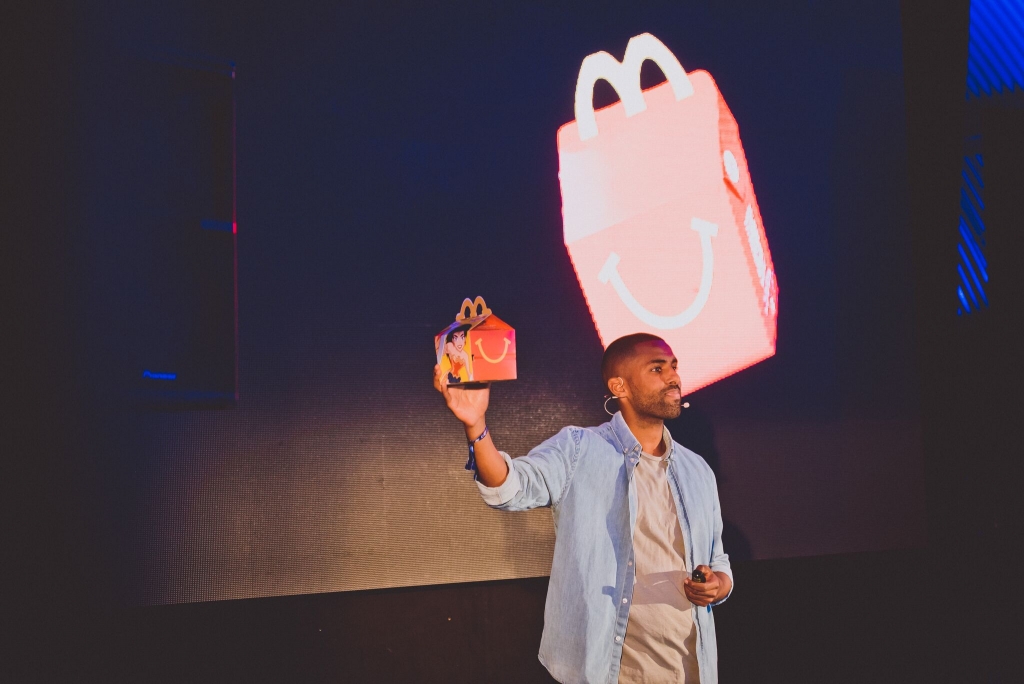
Do We Give Clients What They Want, or What They Need?

When going to McDonald’s, we know what we get. Ordering a Happy Meal comes with as many surprises as the rotating monthly toy. So, basically none. We all know what the meal looks like, what it smells like and what it tastes like. It may look slightly different from what we see in the pictures, but in the end, it’s almost exactly like the last one we had. Sad. But what’s worse: you don’t have to work at McDonald’s to make Happy Meals. We’re all doing it.
Three years ago I started working as a Content Marketeer. I wasn’t aware of what was expected of me, as it was my first job. As a result, I started delivering precisely what clients asked, over and over and over again. And it was going great actually. They were happy, I was happy. In all honesty, I thought I landed a dream job, being creative and successful – Kanye West, eat your heart out.
Until the moment in which I realised that I was making Happy Meals.
McDonaldization
The moment I realised that I was making those so-called Happy Meals was two and a half years ago. I was at McDonald’s with my nephew who was crying because he wanted one and I could not talk him out of it. At this point – and we can all imagine the inside of a McDonalds – I noticed the familiar colours, screens, and products. And while looking at the brain-killing process behind the counter, it hit me: the process is as unified as everything else is.
There’s a sociological theory about the way McDonald’s works worldwide called ‘McDonaldization’. A sociologist named George Ritzer defines McDonaldization, as the process by which principles of fast food restaurants have come to dominate (basically) every aspect of our society. He explains it according to four primary components of McDonaldization:
- Efficiency: every aspect is geared towards the minimisation of time.
- Predictability: no matter where a person goes, they will receive the same service and the same product.
- Calculability: as a customer, you can count on the fact that you will get your food fast and that the quality is always the same.
- - Control: replacing the human by non-human technologies. Things that can be automated will be automated.
And while it’s perfectly fine for a fast food restaurant to live by these principles, it’s not when you’re a Content Marketeer. I was making Happy Meals, for clients ordering them. It was efficient because I did the same thing over and over again. Saving a lot of time. Moreover, the result was predictable and gave me control. I knew how long the process of making content would take. Clients could count on the fact that they would receive their content fast – calculability. It came down to the same ingredients, the same results, with maybe a slightly different plastic toy each month. I’d worked by the principles of McDonaldization.
Microwave meals
The clients obviously ate it up. They had got exactly what they had ordered. But after my McDonalds revelation, I wasn’t happy anymore. It felt I was just heating up microwave meals and people were applauding me for doing so. And, it’s not just me that suffers of the consequences of this system, clients should not be accepting these Happy Meals either. They’re not the best thing they can order, not the best value for their money, nor the best we can do together in creating content.
It’s up to us to show our clients that success does not come with repeating what they or others have done in the past. Success comes with creativity; with taking the time to think about what the best approach is for a certain product and audience, in that market, at that specific time.
We must show clients that efficiency and predictability sound nice and safe, but are not the keywords for the best campaign. Yes, control feels nice, but if you get what you expect, you’re not getting the best. So, after my epiphany at McDonald’s, I decided to never make these microwave meals again. I would never serve another generic campaign. Ever.
Haute cuisine
It’s time to start cooking. Challenge yourself to make the best out of everything, push your boundaries. Why keep chasing microwave meals, when you can be a chef that makes delicious food? After all, heating up pre-cooked concepts happens in every industry. Think about it: how often do you use the same PowerPoint format? Or do you use the same example to stress a point? Or use the same lame joke as an icebreaker? Way too often.
So, steer clear of the ‘microwave theory’. Throw your microwave meals away and start preparing a quality meal. And when things get hard, remember: easy choices, hard life; hard choices, easy life. Switching to gastronomy may sound scary, but the hard choices often force us to do what we need to do in order to reach our goals.
Mewael Fitiwi is Campaign Strategist, at Dept













